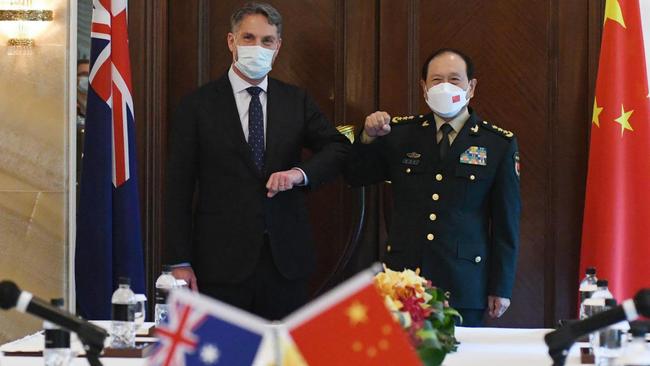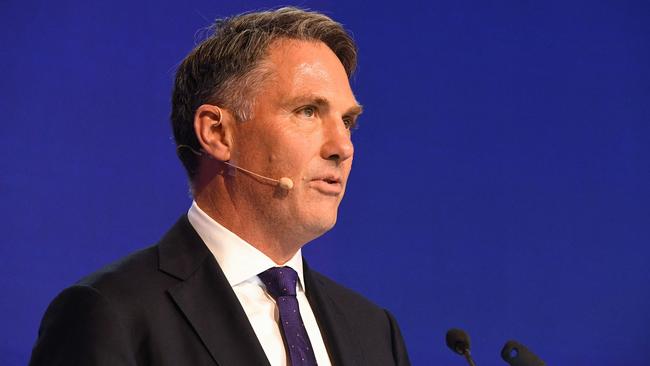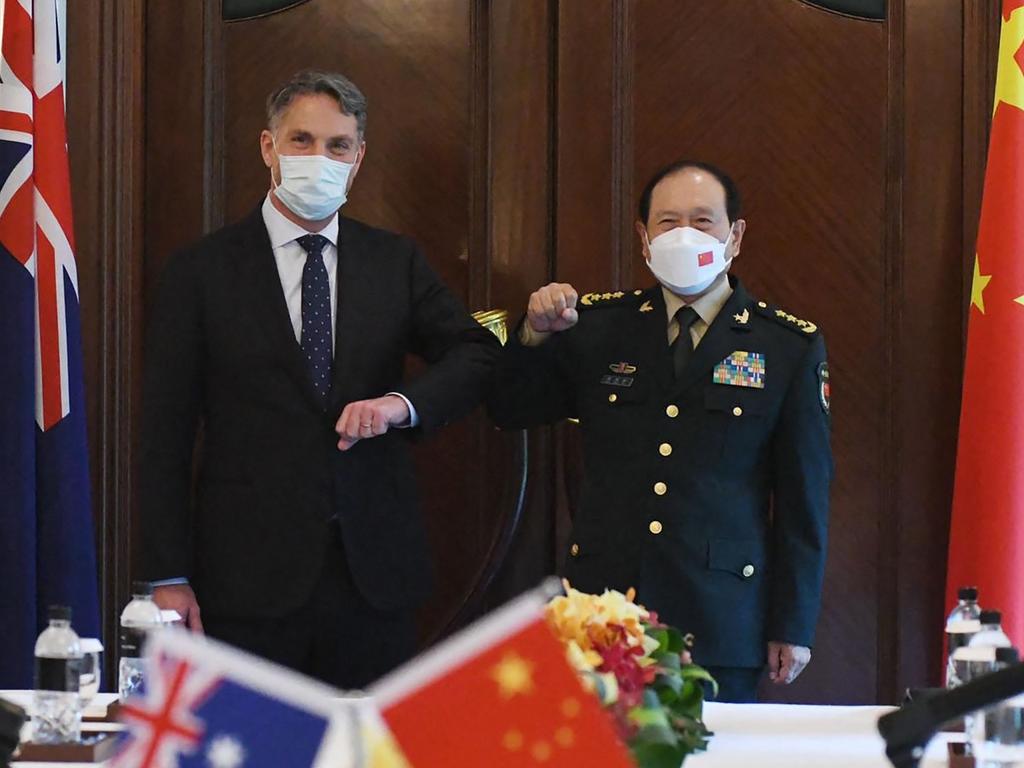
It is abundantly and emphatically not a sign that our problems with China are over.
We have immense conflicts of principle and national interest with Beijing. We also have areas of common interest. This is going to be a troublesome and dangerous relationship for decades to come. But perhaps there can be calmer management.
It was always likely that at some point Beijing would think it had gone on with its tantrums and punishments long enough.
Beijing hated the Morrison government, which certainly reflects no discredit on the Morrison government.
It was also always the case that Beijing was likely to both simultaneously test a new Labor government, as well as offer it some kind of dialogue.

So far Anthony Albanese, Marles, and Foreign Minister Penny Wong have handled these cross currents and complexities with strength, nuance, precision and balance.
It’s only a beginning, but it’s an impressive beginning.
It is critically important to realise that the Chinese Defence Minister hosted this meeting with Marles after Marles had made a series of straightforward, almost blunt, criticisms of Beijing, though in sensibly moderate language.
In his speech at the Shangri-La Security Dialogue the day before he met Wei, Marles criticised Beijing’s vast military build-up. He criticised its island occupation and island construction in the South China Sea, saying it was inconsistent with the Law of the Sea and the international rules based order.

Marles has several times reiterated Australia’s longstanding policy on Taiwan. Canberra supports the one China policy and is opposed to any unilateral declaration of formal independence by Taiwan.
However, Australia enjoys good relations with the people of Taiwan and opposes any attempt by any party to unilaterally change the status quo on Taiwan.
That is a diplomatic formula as precisely worded as any Vatican doctrinal statement on the Immaculate Conception. Translated from diplomat’ese, it means that Australia, like the US, strenuously opposes any suggestion that Beijing might try to use force to bring Taiwan under mainland Chinese rule.
Marles has also reiterated Australia’s commitment to the US alliance, and the centrality of deep US involvement in the Indo-Pacific. Albanese and Wong have stressed similar themes.
As Marles said, while the new government would adopt a different tone, the substance of Australia’s national interests would not change, and Labor gave bipartisan support on the substance of all these issues to the former Morrison government.
Beijing hates all of those Australian positions. But it decided, sensibly, to resume ministerial dialogue anyway.
At his meeting with Wei, Marles also repeated Canberra’s concerns over the recent aggressive and dangerous Chinese jet fighter intercept of an Australian maritime surveillance plane.
There is no suggestion that the Albanese government, or Marles specifically, made any needless or improper concession to secure this ministerial dialogue.
I thought Morrison and former defence minister Peter Dutton frequently overdid the rhetoric on China for obvious political reasons. It is particularly foolish to talk frequently and needlessly of war. Other nations have problems with Beijing just like Australia does, but they don’t go in for this silly, exaggerated rhetoric.
Nonetheless, it was not remotely because of this misjudged rhetoric that Canberra had problems with Beijing. It was because of Beijing’s unreasonable diplomatic, political and sometimes military aggression.
Albanese frequently quotes Kurt Campbell’s phrase that the US, and its allies like Australia, recognise strategic competition with Beijing but want “competition without catastrophe”.
The first step to achieving that laudable aim is national resolve. Second step is dialogue where possible without conceding key interests. So far, the new Albanese government is managing this double act pretty well.








Richard Marles’ meeting with the Chinese Defence Minister, General Wei Fenghe is a welcome sign the temperature of the Canberra/Beijing relationship may go down and normal interstate professional management of differences and common interest resume.